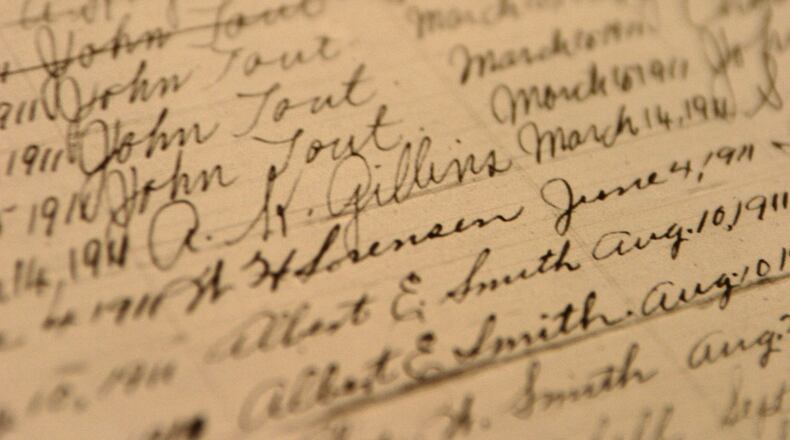Marriage records can be extremely useful in genealogy research, if they exist and if they can be found.
In colonial times, some marriage records survived due to parish or church records. After the United States began, each state created its own laws and differed on when marriages were required to be recorded in the courthouse. You usually can find the records of Georgia marriages that occurred after 1805, and in some cases can find information on those that took place before then. While one might get a license from the court, it was up to the minister or other officiant to return the proof of marriage to the courthouse for the actual recording, and many times that never happened.
South Carolina did not require courthouse or civil marriages until 1911; Pennsylvania not until 1885. So if you are looking for a marriage record, be sure you know the laws in place in the state in question. If you can’t find a marriage in the records, check a church, or a newspaper. Some marriages could have just taken place without a license, depending on the remoteness of the region, and common law marriages were recognized in most states.
Some of our ancestors had children without even pretending to be married. While divorce was infrequent, it was a possibility. In many states, divorce was granted only by the state legislatures. That was the case in Georgia until 1835. Marriage customs differed by region and religion, and some faiths felt that just having a church record was enough. FamilySearch.org has a marriage index for many states. Ancestry.com also is a good place to check for a marriage record that you might have overlooked since the search can cover an entire state, not just a few counties. All in all, some statistics indicate that a good number of marriages were never recorded, for whatever reasons.
DNA bargains for the holidays
All the major DNA companies have announced significant discounts from now until around Thanksgiving, and I am sure further discounts will be available for the Christmas season through New Year’s Eve as has happened before. Autosomal testing is offered by all companies, but the Y-DNA test for the direct paternal line is only offered at familytreedna.com and is well-worth taking (only by men) to help verify your family name. All autosomal results provide ethnicity percentages, an inexact science at best.
German genealogy websites
To find a list of German genealogy sites, search for “FamilySearch, German genealogy websites” and check out what shows up.
About the Author
Keep Reading
The Latest
Featured


